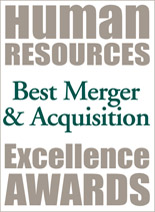Our labor relations consultants specialize in helping organizations navigate the complexities of labor relations, including union avoidance, negotiating collective bargaining agreements, managing disputes, ensuring compliance with labor laws, and management training.
Our expertise promotes positive relationships with employees and union
leadership to create a productive work environment.

Managing employee relations requires balancing workforce needs with business goals. Labor relations consultants serve as neutral, knowledgeable advisors who help organizations maintain compliance and resolve issues before they escalate. Through negotiation, communication, and strategic planning, they enhance team engagement and organizational effectiveness.
For more than forty years, Cameron J. Hutchison and his team have helped union and nonunion employers improve employee relations to increase productivity, teamwork, and performance.
Mr. Hutchison provides practical solutions to a wide range of HR issues, including labor agreement negotiations, union–management cooperation, business restructuring, HR due diligence for mergers and acquisitions, employee relations assessments, and leadership training. He also develops programs to reduce the risk of union organizing campaigns.

He has worked with companies such as Boeing, United Technologies, General Electric, KKR, Dow Chemical, GKN Aerospace, Spirit AeroSystems, CenturyLink, Onex, PepsiCo, Westinghouse, Allison Transmission, Haier, and The Carlyle Group, and is well regarded by major labor unions. Recent work includes negotiating labor agreements for General Motors, Boeing, and GE divestitures, restructuring labor costs, and securing more flexible work practices.
Before founding The Hutchison Group in 1996, Mr. Hutchison was a senior executive at Westinghouse Electric Corporation and Sundstrand Corporation, where he worked under Harry Stonecipher, former President and CEO of McDonnell Douglas and Boeing. He holds an MBA in Labor Relations and an MS in Industrial Psychology, and completed pre-doctoral studies and executive programs at Harvard Business School and Columbia Business School.
Mr. Hutchison has received multiple awards, including the HR Excellence Award for Best Merger and Acquisition from KPMG Consulting. He has advised two State Governors on business development, taught business management at The Ohio State University, and presented at the U.S. Federal Mediation and Conciliation Service annual conference as a recognized innovator in labor relations.

With over 40 years of experience, the Hutchison Group helps both union and nonunion employers address a wide range of employee and labor relations issues. Our practical, collaborative strategies drive productivity and enhance teamwork.
We work as an extension of your management team—exploring options, setting objectives, and delivering measurable results. Our solutions are custom designed, not prepackaged.

We support company leadership and private equity firms with rigorous HR and Labor Relations due diligence, identifying risks and opportunities, evaluating collective bargaining agreements, potential for union organizing, and uncovering opportunities for integration improvement. We advise on labor cost controls and organizational restructuring for optimal post transaction performance.


In organizations without union representation, the firm quietly assesses susceptibility to union organizing efforts and defend against active union campaigns. We help companies develop effective strategies and communication plans to maintain union free operations.
For unionized operations, a labor relations consultant crafts negotiation strategies aimed at reaching equitable, productivity-focused contract agreements. We can either lead negotiations or support in-house negotiators, drawing on industry benchmarks and best practices to deliver “win-win” outcomes.


Recognizing that managers and supervisors play a critical role in shaping the workplace climate, we offer tailored training to enhance leadership skills, improve team cohesion, and minimize grievance escalation. Training includes proven communication techniques, effective leadership skills, and legal compliance.
For union-represented workplaces, we encourage structured collaboration between management and union leadership to resolve issues proactively, decrease grievances, and pave the way for more constructive negotiations and operational flexibility.


Our assessment process involves structured focus groups with employees, supervisors, and union stewards to surface authentic insights into morale, concerns, and opportunities. The goal: develop actionable strategies that foster trust, reduce turnover, assess the risk of union organizing, and prepare organizations with unions for contract negotiations and operational improvements.
This work involves analyzing restrictive work rules, job design, management spans-of-control, and compensation practices. The aim is to streamline operations, broaden job scope, reduce overhead, and implement performance based reward systems — all tailored to specific operational needs.

Labor relations consulting firms are essential for any organization that faces complex employment laws, is experiencing workplace issues, or wishes to proactively manage union-related challenges.
Businesses looking to mitigate risks associated with labor disputes, improve employee relations, or navigate compliance failures will find these consulting services invaluable to maintain harmony and efficiency in the workplace.
Labor relations consultants serve as intermediaries between employers, employees, and unions. They use their knowledge of labor laws to promote legal compliance and workplace cooperation. Their role includes resolving disputes, drafting agreements, and helping organizations adjust strategies based on changing economic or political factors.
Open communication is central to their approach. Consultants often establish systems to identify and address workplace concerns early. They may also implement training programs on conflict resolution and leadership to strengthen organizational culture, especially during transitions like mergers or acquisitions.
Their services go beyond avoiding conflict—they help build a workplace culture grounded in clarity, respect, and accountability.
Labor relations consultants provide services that include:
Policy Advising: Ensuring labor policies align with current laws and organizational goals.
Employee Feedback: Conducting surveys to assess morale and identify improvement areas.
Contract Drafting: Creating legally compliant and mutually agreeable labor agreements.
Dispute Resolution: Mediating conflicts between employees and management.
Management Training: Equipping leaders with communication and compliance skills.
Preventive Strategy: Identifying potential conflict areas and implementing solutions proactively.
These tasks help improve organizational efficiency and reduce the risk of labor disputes.
Successful labor relations consultants possess:
Strong Communication: Explaining complex labor laws in clear, actionable terms.
Legal Expertise: Deep understanding of labor laws and regulations.
Emotional Intelligence: Navigating sensitive discussions with empathy and control.
Negotiation Experience: Reaching solutions that satisfy both parties.
Certifications: Credentials like SHRM-CP or CPLP demonstrate advanced knowledge.
Practical Experience: Internships or HR roles provide valuable real-world insights.
These competencies ensure that consultants can guide businesses effectively through labor challenges.
Effective negotiation is central to labor relations. Consultants identify each party’s interests, define objectives, and set boundaries to foster productive discussions. Techniques like integrative bargaining promote collaboration, enabling win-win outcomes.
For example, flexible work arrangements might satisfy both employee requests and employer budget constraints. According to a 2023 AMA survey, organizations that use skilled negotiators reduced workplace conflicts by 35%.
Consultants help organizations comply with laws such as the National Labor Relations Act (NLRA), protecting workers’ rights and promoting lawful management practices. They guide both unionized and non-union workplaces, managing collective bargaining agreements and addressing compliance gaps.
A 2024 Bureau of Labor Statistics report found that companies investing in labor consulting saw a 20% increase in retention and a 15% reduction in legal disputes. The value of labor relations consulting includes:
Regulatory Compliance: Reduces legal risk and ensures policy alignment.
Operational Efficiency: Identifies inefficiencies and improves processes.
Cost Savings: Resolves disputes without expensive legal action.
Improved Retention: Enhances employee satisfaction and reduces turnover.
Cultural Transformation: Builds trust, transparency, and teamwork.